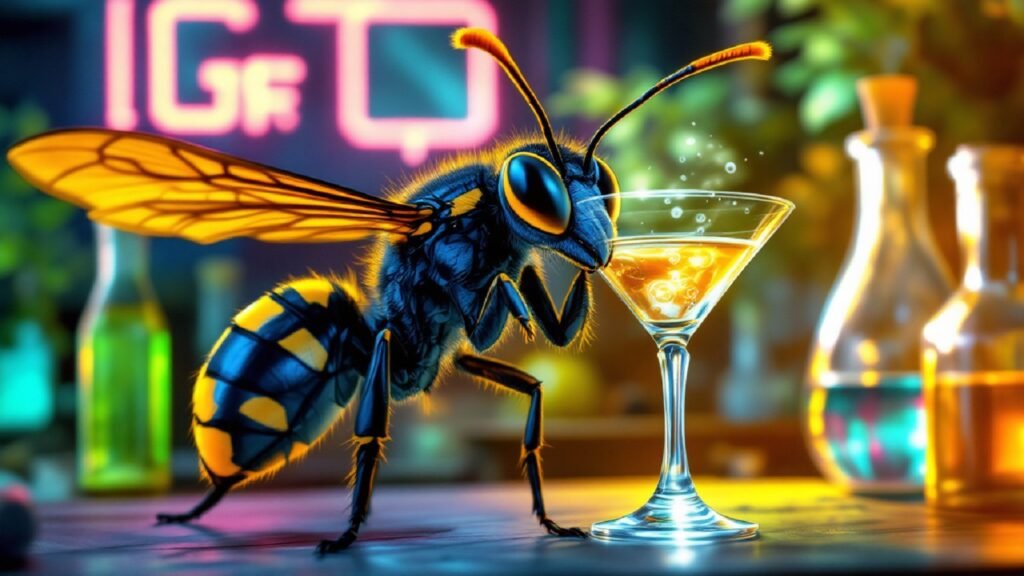An Israeli study has found that oriental hornets (Vespa orientalis) can consume large amounts of alcohol without adversely affecting their health or longevity. Tel Aviv University researchers announced Sunday that these hornets are capable of chronically ingesting high concentrations of alcohol and show no signs of intoxication or behavioral changes.
The study, published in the Proceedings of the National Academy of Sciences, suggests that this unique ability could lead to new models for studying alcohol dependence and alcohol metabolism in humans. The researchers discovered that when the wasps ingested alcohol labeled with heavy carbon isotopes, they rapidly metabolized it and exhaled it as carbon dioxide.
“Even ingestion of high concentrations of alcohol had no appreciable effect on the behavior of the hornets,” the study said, indicating that the hornets were not intoxicated. Furthermore, wasps that consumed only alcohol throughout their three-month lifespan lived as long as those that drank sugar water.
Scientists conducted bioinformatics analysis and discovered that the wasp has multiple copies of a gene responsible for producing the enzyme that breaks down alcohol. This genetic adaptation may explain their superior ability to handle alcohol.
The researchers proposed that the wasp’s habit of storing yeast in its digestive system, allowing the yeast to multiply and transfer to the fruit, may have led to the development of this genetic trait. Alcohol is usually produced by the breakdown of sugars by yeast and bacteria found in ripe fruit and flower nectar. Alcohol contains almost twice as much energy as sugar, but is toxic to most animals and humans, especially when used chronically.
This study contrasts with other animals known to consume alcohol, such as fruit flies and swallows, which show signs of alcohol intoxication and symptoms like fatty liver disease even at low concentrations.

